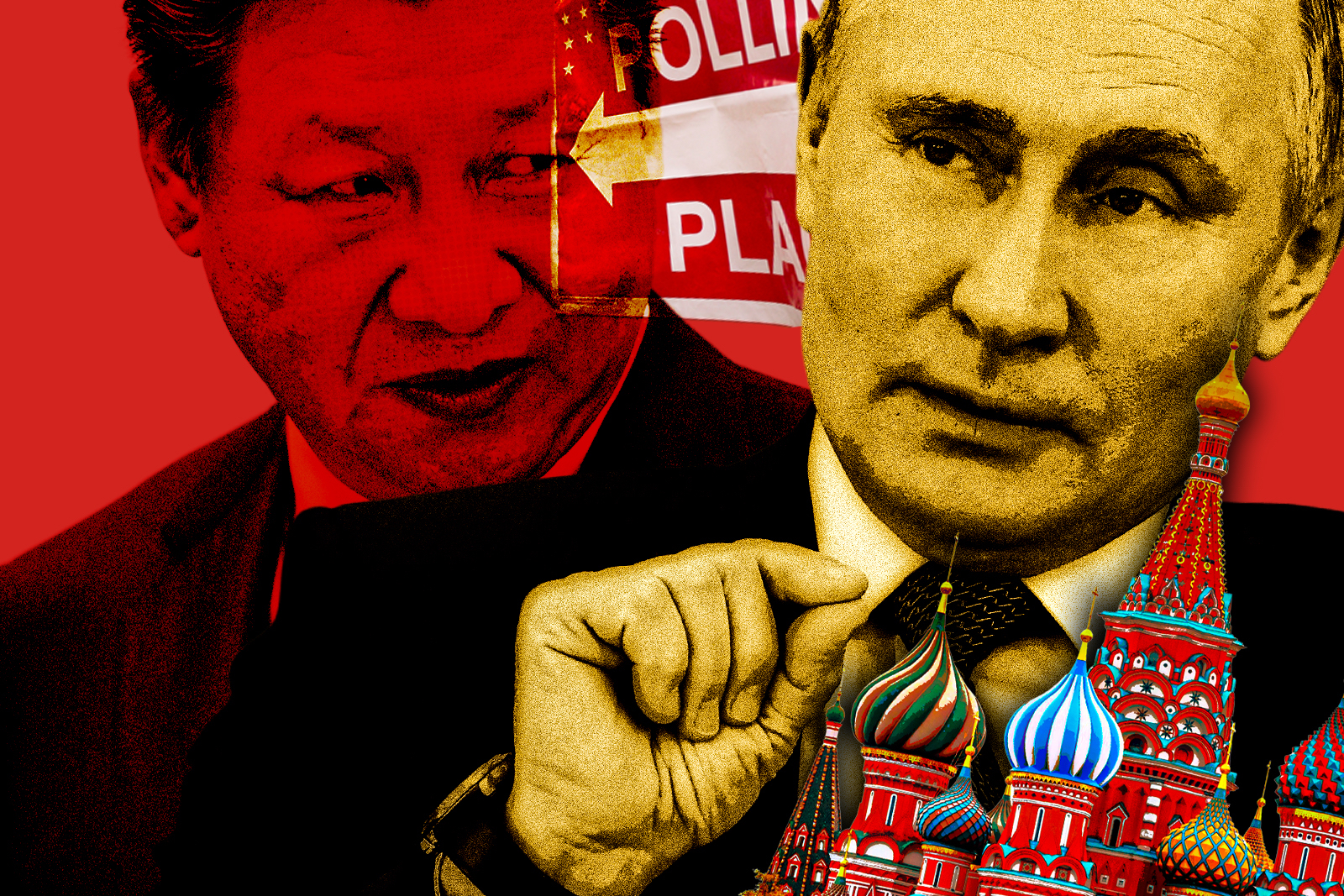
A Democratic China and Russia Would be More of a Challenge
The foreign policy establishment’s consensus on great power competition sounds something like this: during the 1990s and the 2000s, liberal democracy had won, and power politics was history. However, authoritarian regimes in China and Russia woke up the old demons of tyranny and nationalism and are trying to undermine liberty wherever they can. The war in Ukraine is the culmination of that epochal struggle between authoritarianism and democracy. Consequently, the West needs to exorcise the dictators out of Beijing and Moscow and turn the two great powers into democracies. Indeed, Chinese and Russian democratic leaders would have no interest in quarreling with other states and would happily abide by the rules of the international liberal order and American leadership.
This consensus is not only misguided but endangers American security. Conventional thinking assumes that China and Russia’s revisionist foreign policies do not represent their true national interest but merely their respective dictators’ preferences. Therefore, democratic leaders in Moscow and Beijing should be content with their current borders and existing security arrangements because democrats are almost always status quoist. Nevertheless, this assumption is unrealistic.
First, most ongoing conflicts involving China and Russia will likely persist with whoever is in charge in Beijing and Moscow. Even a legitimately elected Chinese president would consider Taiwan a part of China, prefer the South and East China Seas to become Chinese, and want to resolve the Sino-Indian border dispute on his terms. A liberal Russian president would still like Georgia and Ukraine to align with Moscow instead of Washington and worry about NATO enlargement.
The historical record confirms that democracy hardly correlates with the status quo. Democratic India and Israel yearn for larger borders. The pursuit of national unification heavily influenced West Germany and still influences South Korean foreign policy. Territorial disputes can even persist between two stable democracies like South Korea and Japan. Why should a liberal China appreciate a U.S. aircraft carrier passing through the Taiwan Strait any more than an authoritarian one?
Historically, the United States conquered large swathes of land and worked hard to push fellow democratic Britain’s influence out of the Western Hemisphere and reach regional hegemony. There is no reason to believe that a democratic China or Russia would eagerly accept the current balance of power in their respective neighborhoods. Beijing and Moscow would still have a deep-seated interest in dominating their home regions. In a democracy, failing to defend the national interest can result in electoral routs; a democratic China and Russia could be even more vehement and aggressive.
Democratization will not turn the Chinese and the Russians into docile members of the liberal international order. However, it may alter China and Russia’s trajectories in an overlooked yet worrisome way: it could render them immensely more powerful. Democracy is unlikely to change Chinese and Russian intentions, but it would change their capabilities.
Liberal democracy tends to perform better at generating power in the long run. Since at least Machiavelli, many have seen democratic governments as more efficient at husbanding their country’s resources for international competition. The rule of law protects private property against rapacious or resentful governments, thus encouraging investors and entrepreneurs. In turn, this offers a favorable environment for technological innovation. In open systems, corrupt officials have a shorter lifespan. Autocrats’ heavy-handed interventions in the economy derail creative destruction by artificially subsidizing unproductive industries helpful to the regime. Regular elections, free speech, and an open flow of ideas enable sincere discussions before making decisions and allow course correction if these decisions are poor.
This does not imply that democratic states always make good decisions. Foreign policy blunders like Afghanistan, Iraq, and Libya have been an American trademark for decades. However, democratic rule allows for feedback and punishes incompetent leaders, Britain’s Chamberlain being a prime example. Also, some authoritarian regimes successfully pushed their society to its full potential. Nazi Germany was highly skilled at generating military strength. Nowadays, authoritarian Singapore musters a high-income economy enabled by efficient state machinery. But these are the exception more than the rule.
Russia makes the headlines for its lackluster campaign in Ukraine, despite its sizeable military superiority on paper. Moscow gravely underestimated the Ukrainian will to resist an invasion and failed to prepare for an all-out war. A liberal democracy, with its open debates and contradictory opinions, may have avoided such over-optimistic planning. It would instead have worked on worst-case assumptions because a lost gambit of that magnitude would likely destroy a democratically elected leader’s career. A democratic Russia may still have made major mistakes, but not this one.
Russia is as populous as France and Germany combined and possesses enormous natural resources. Despite a battered economy, Moscow maintains the strongest military in Europe. What could a competent, efficient Russian state machinery accomplish? The Ukrainians, Balts, and Poles have no interest in finding out.
Many see China as the next hegemonic great power. China’s power potential is formidable; if its wealth per capita equaled Japan’s, it would be twice as rich as the United States. Thus, Beijing still has a considerable progress margin, but the Communist Party’s rule hampers Chinese long-term growth. Granted, it oversaw several decades of impressive growth. Nevertheless, overbearing state-owned companies, nepotism, and unproductive public investments create enduring economic waste. Furthermore, Xi Jinping’s inflexible zero-COVID policy has wrecked economic activity across China’s most productive areas.
Political impediments also plague Chinese military capabilities. Officers are often chosen more for their loyalty than for their competency. Chinese soldiers lose significant time in ideological training. Beijing spends as much money on internal security as on defense. China would be considerably more powerful if this money went to the military instead. Hence, a liberal democratic regime in Beijing could unleash the energy and dynamism of 1.4 billion people and turn China into an unstoppable behemoth.
Their authoritarian regimes make China and Russia less dangerous foes than they could be. Accountable leaders in Beijing and Moscow would likely mobilize their power potential more efficiently and muster more formidable military forces. Meanwhile, nothing proves that democratic China and Russia would follow U.S. leadership and respect American interests. U.S. influence might succeed in turning them into liberal democracies, but these new liberal democracies might end U.S. influence. The Beltway consensus wishing to turn the two great powers into democracies is thus dangerous. American leaders may still conclude that propagating democracy and defending human rights justifies sacrificing U.S. security and power, but this deserves a livelier public debate.

